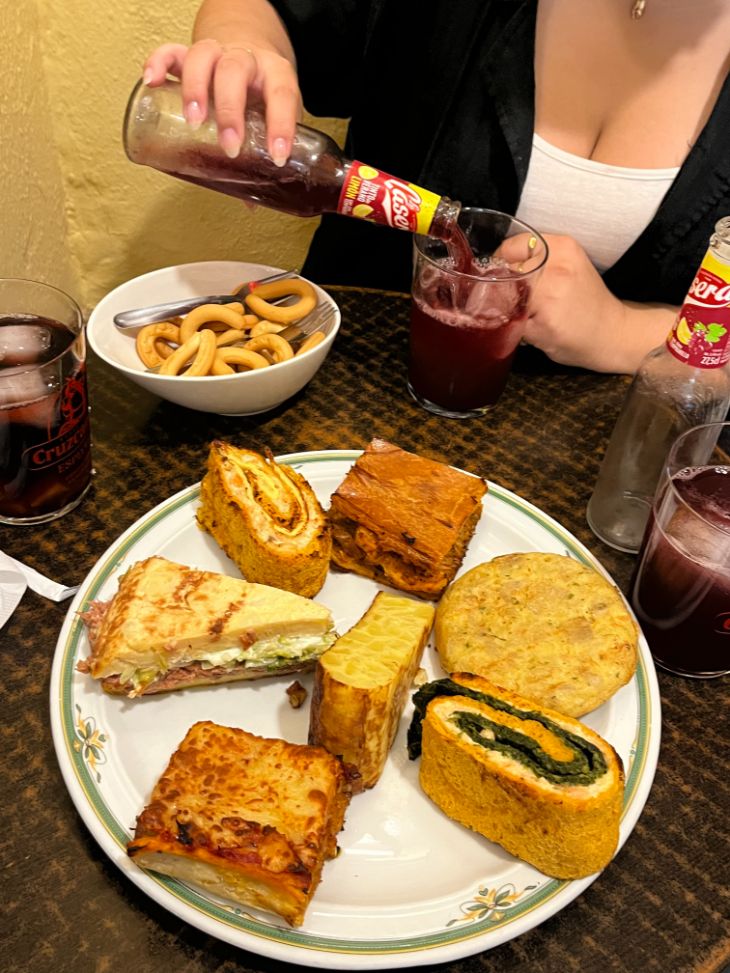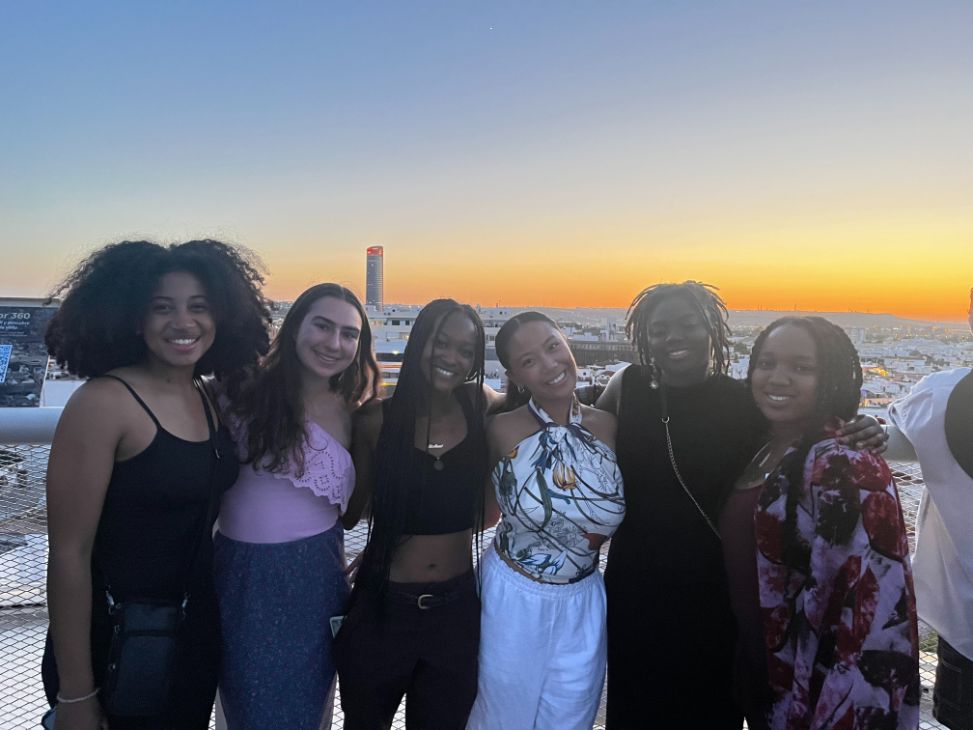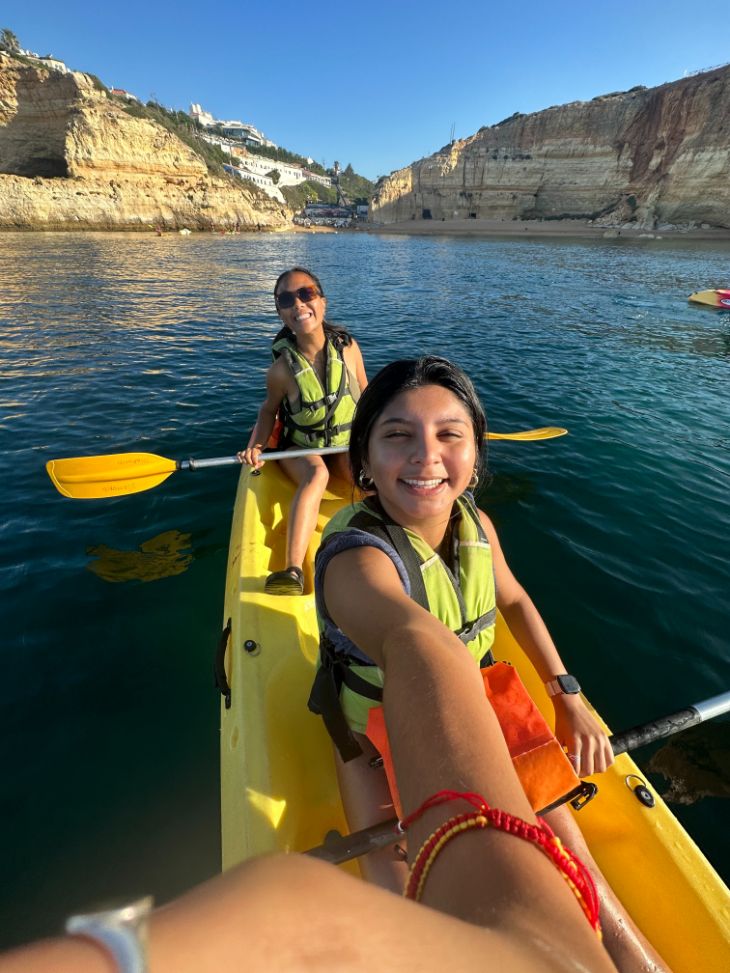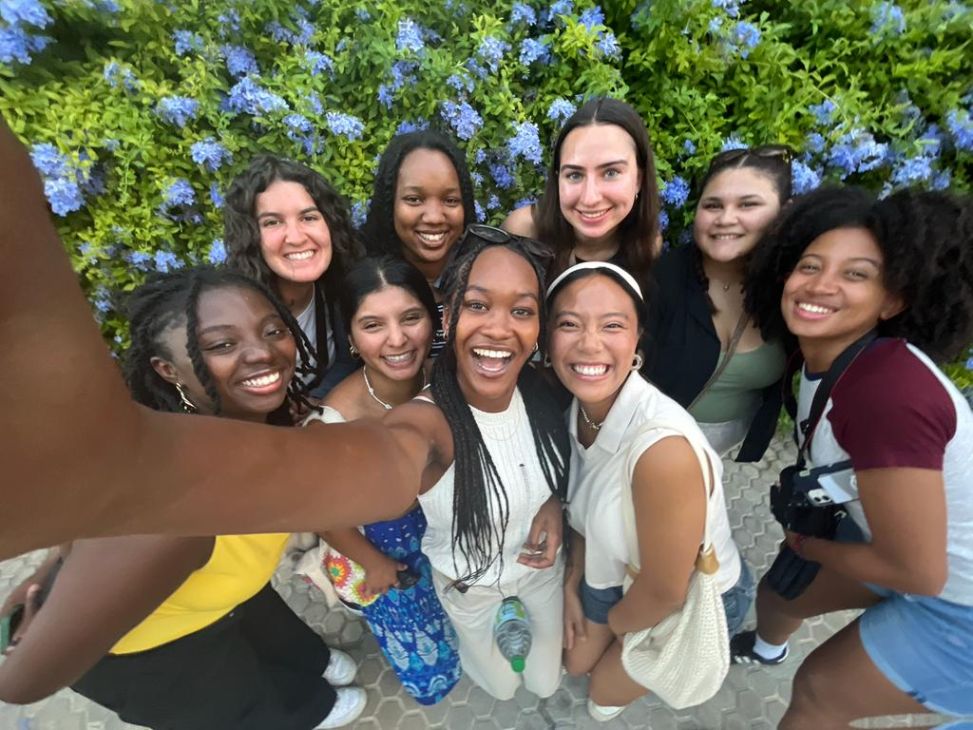Dianne Celemen
About My Study Abroad Program
Major/Minor: Psychology Major, Biology Minor and Spanish for the Professions Minor
Program: UNC Science in Sevilla
Location: Seville, Spain
Email: diannec@unc.edu
Term: Summer 2023
Why did you choose to study abroad and how did you select your program?
I chose to study abroad to be able to travel at a young age with other peers while gaining college credit that went towards my degree. I have always dreamt of traveling to Europe to strengthen my skills in navigating uncomfortable and new situations on my own as well as to see beautiful architecture, culture, food, and music that you can't replicate back in my hometown. I wanted to learn Spanish firsthand and be immersed in a totally new culture. This targeted my personal objective of growing in cultural humility and understanding. Also, I really wanted to foster connections with fellow UNC students over shared experiences in a completely different setting. In contrast to a non-UNC study abroad program, UNC Science in Sevilla allows me to take courses with students that I can maintain relationships with back home, post-program, during my subsequent years at Carolina. This is one of the main reasons that I chose a UNC-led program, and I am so happy I did so. Not only did I make several friends that I can now maintain relationships with back at Carolina, I was able to get to know Dr. Gordon, a UNC biology professor, and Professor Sandra Guiterrez, both of whom I want to take more classes with back here. I also chose this specific program for the courses it offered; both classes that I took contributed to my double minor.
What did you learn about yourself?
Through this experience, I learned more about being very open-minded when visiting a totally different country/place than where you're used from. I grew to become quite adaptable in the ways that Spanish lifestyle differed from mine at home. I learned that there are many more ways that life can be enjoyed that are different that what I am used to seeing back in my hometown. Though unfamiliar, these lifestyles should be approached with an observant and non-judgemental eye. Of course, I came with implicit cultural bias, but by being aware of it and trying my best to be impartial, I was able to enjoy new culture and experiences wholeheartedly. I wouldn't have learned to adopt this kind of mindset had I not traveled abroad at this age and time in my life. However, it is not something that stayed in Europe: I want to apply this observant behavior in my daily life as I continuously experience new things. It will help me be more adaptable to life changes and encourage me to step outside my comfort zone, knowing that every experience can be a lesson learned.
What is one of your favorite memories from your program?
One of my favorite memories from my program was visiting Las Setas de Sevilla, an architectural landmark unique to the city I studied abroad in. This beautiful structure is a must-see in Seville, so my friends and I planned a trip to go see it. We had just finished our first biology midterm. I brought up the idea of going into the city to see Las Setas at sunset, the prime time to walk atop the structure and see the entire city from a view. All of us dressed up and went at sunset to take pictures, relax post-exam, and gaze at the beautiful city that was quickly becoming a beloved spot in our hearts. Afterwords, we went to dinner together at a restaurant serving traditional Spanish tapas. We walked back to the residence hall, winding between the Spanish buildings and getting to know each other. This memory was so special because, together, we were immersed in Spanish culture-- the architecture, the food, and the overall atmosphere of a summer's night in Seville.
What advice do you have for future study abroad students?
I would tell future study abroad students that the world is so big, and there will be endless things to learn and experience. No matter what part of the world you study in or travel to next, you will always find something new to learn about that culture/region, and often, about yourself-- how you respond to new environments, adapt, create a home away from home, etc. I would also tell them to be courageous. Being abroad can be a once in a lifetime experience for many people, so I would tell them to experience new things, make new friends abroad, and try new foods even if those things may seem uncomfortable at first glance. This piece of advice is more understated, but I believe it's important: journal about your experiences; your words will be a piece of your own personal history. Also, take many pictures and videos!
How do you identify?
Student of color
Is there any advice you would give to other students who share your identity?
Being in a student of color abroad was an interesting experience, especially in a city that was not so diverse as Chapel Hill. However, I think it's important to find people who may share your identity and make you feel supported abroad.
If you faced any challenges abroad, where could you turn to get the support you needed?
I always felt comfortable to turn to my professors, Dr. Gordon and Professor Guiterrez. Furthermore, the COWA staff was always welcoming and supportive of any identity-related issues.
Memories





